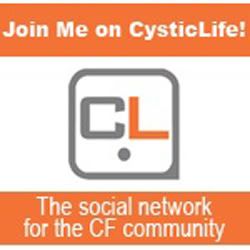I thought this was a very interesting article highlighting the limited research on exercise. I've highlighted the biggest take-aways if you don't have the time to read the whole thing.
“A lot of physiologists come into the discipline because they fundamentally like exercise,” Martin Gibala, an exercise physiologist at McMaster University in Ontario, told me. “But you learn very quickly that there’s not a lot of research money out there to fund applied studies.” On matters as simple as how many sets and reps best promote muscle growth, Mr. Gibala explained, “We can’t nail down the answer.”
Even if the funding were there, Mr. Gibala says, “That’s not state-of-the-art research that you’re going to publish in the best journals and advance your career.” Instead, he says, physiologists study questions of basic science, “like the molecular signaling proteins that regulate skeletal muscle adaptation.”
I also thought of the CF community and what we're trying to do in promoting patient-centered or patient-driven research when I read this...
The human body is an adaptation machine. If you force it to do something a little harder than it has had to do recently, it will respond — afterward, while you rest — by changing enough to be able to do that new hard task more comfortably next time. This is known as the progressive overload principle. All athletic training involves manipulating that principle through small, steady increases in weight, speed, distance or whatever.
So if your own exercise routine hasn’t brought the changes you’d like, and if you share my vulnerability to anything that sounds like science, remember: If you pay too much attention to stories about exercise research, you’ll stay bewildered; but if you trust the practical knowledge of established athletic cultures, and keep your eye on the progressive overload principle, you will reach a state of clarity.
I think we all see people in the CF community that are doing the things and making the choices that work for them. In some cases, there is a large cohort of the CF community that has bought into a certain lifestyle or treatment or "culture" that seems to be having positive effects. I look forward to identifying those a doing what we can to promote research around those areas.
If you have any comments, I'd love to hear them.










